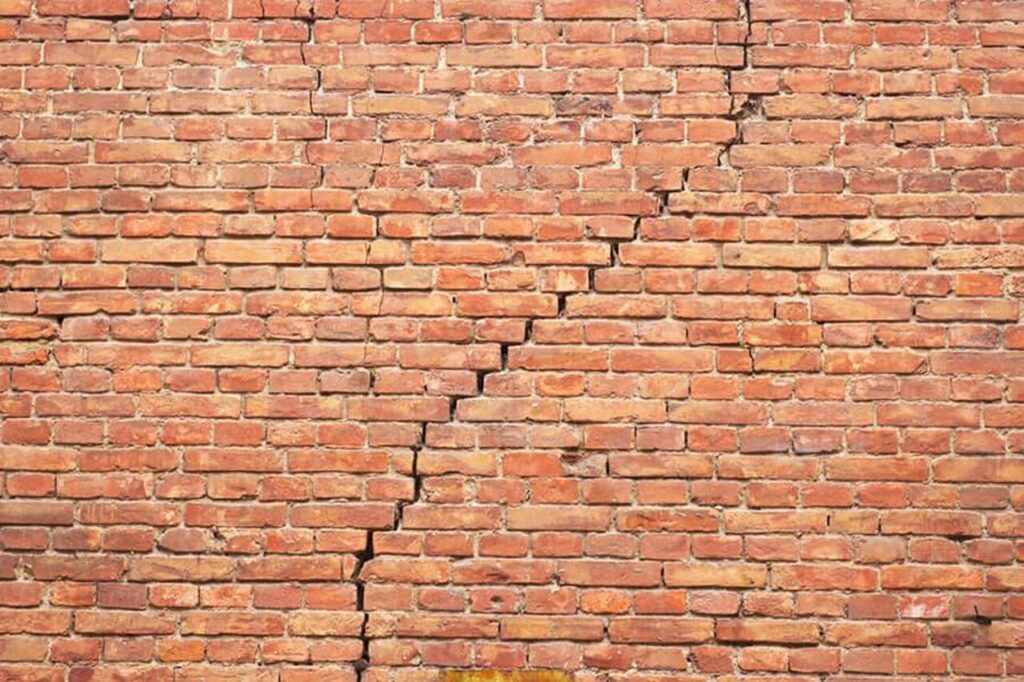
Introduction
Cracks in a brick house or stair-step brick cracks in your home can be a distressing sight, triggering fears of costly foundation issues or structural damage. However, not all cracks are created equal, and many can be attributed to factors unrelated to the foundation. In this extensive guide, we will examine various types of brick cracks, their causes, and effective repair and prevention methods to help you make an informed decision.
The Potential Issues Caused by Cracked Bricks
Cracked brick walls in your home can understandably lead to feelings of unease and concern, as our homes represent not only a safe haven but also a significant financial investment. Recognizing the potential issues associated with cracked bricks and understanding how to address them can help alleviate anxiety and provide peace of mind.
Structural Integrity
Cracks in brick walls can represent a compromise in the structural integrity of your home, especially if they are caused by foundation issues. Ignoring these cracks may lead to more severe problems, such as bowing or bulging walls, sloping floors, or even collapse in extreme cases. Addressing the root cause of the cracks early on can help maintain your home’s structural stability.
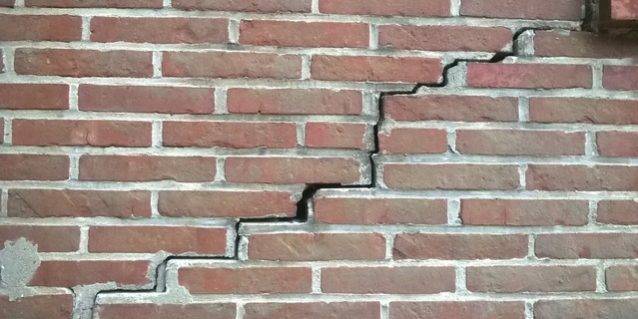
Moisture Penetration
Cracks in brick walls can allow moisture to infiltrate your home, leading to a host of problems. This moisture can weaken the structure of your home, encourage the growth of mold and mildew, and even cause damage to your home’s interior. Identifying and repairing cracks promptly can help protect your home from water damage and maintain a healthy living environment.
Energy Efficiency
Cracks in brick walls can also negatively impact your home’s energy efficiency. As air leaks through these cracks, your heating and cooling system will have to work harder to maintain a comfortable temperature. This can lead to increased energy costs and a larger carbon footprint. Sealing and repairing cracks can improve your home’s energy efficiency and reduce your utility bills.
Pest Intrusion
Wall cracks can provide an entry point for pests such as insects and rodents. These unwanted guests can cause damage to your home, contaminate food, and spread diseases. Addressing cracks in your home’s exterior can help deter pests and maintain healthy living space. So make sure you get those wall cracks fixed.
Aesthetic Appeal
The appearance of cracked bricks can detract from your home’s aesthetic appeal, potentially lowering its value. By repairing these cracks and maintaining your home’s exterior, you can preserve its beauty and protect your investment.
Understanding the potential issues caused by cracked bricks on your brick wall and addressing them early on can help you maintain the structural integrity, energy efficiency, and aesthetic appeal of your home, ultimately providing you with peace of mind.
Comprehensive Guide to Crack Repair and Prevention
With a thorough understanding of the root causes of cracked bricks, you can now take well-informed and effective steps to repair existing cracks and prevent future ones from forming.
Repairing Brick Cracks
Tuckpointing
Tuckpointing is a highly effective method for repairing cracks in horizontal cracks and vertical brick cracks. It involves carefully removing the damaged mortar from the affected area and replacing it with new, high-quality mortar. This process not only repairs existing brick wall cracks but also strengthens the overall structure and prevents further deterioration.

Epoxy Injection
For hairline brick wall cracks, which can be both horizontal brick cracks or vertical brick cracks, epoxy injections offer a long-lasting solution. The epoxy resin is carefully injected into the crack, filling it and bonding the brickwork together. This method not only seals the crack but also restores the structural integrity of the brickwork, ensuring a durable repair.
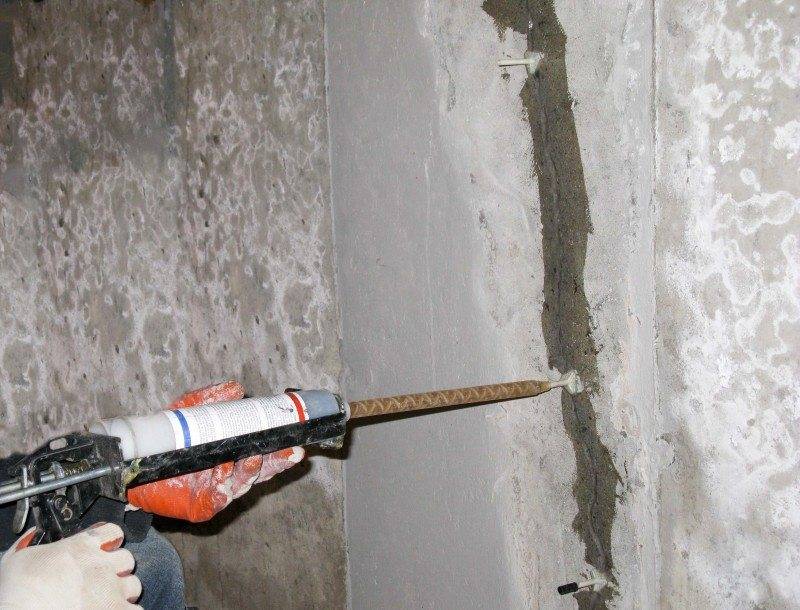
Helical Ties
In cases of more severe brick cracks and horizontal cracks, helical ties can be installed to stabilize and support the brickwork, preventing further damage. These ties are made of corrosion-resistant materials and are designed to span across the cracked area, effectively redistributing the load and providing additional strength to the brickwork. Tackle slab leaks head-on – protect your property and prevent further damage. Take action now!
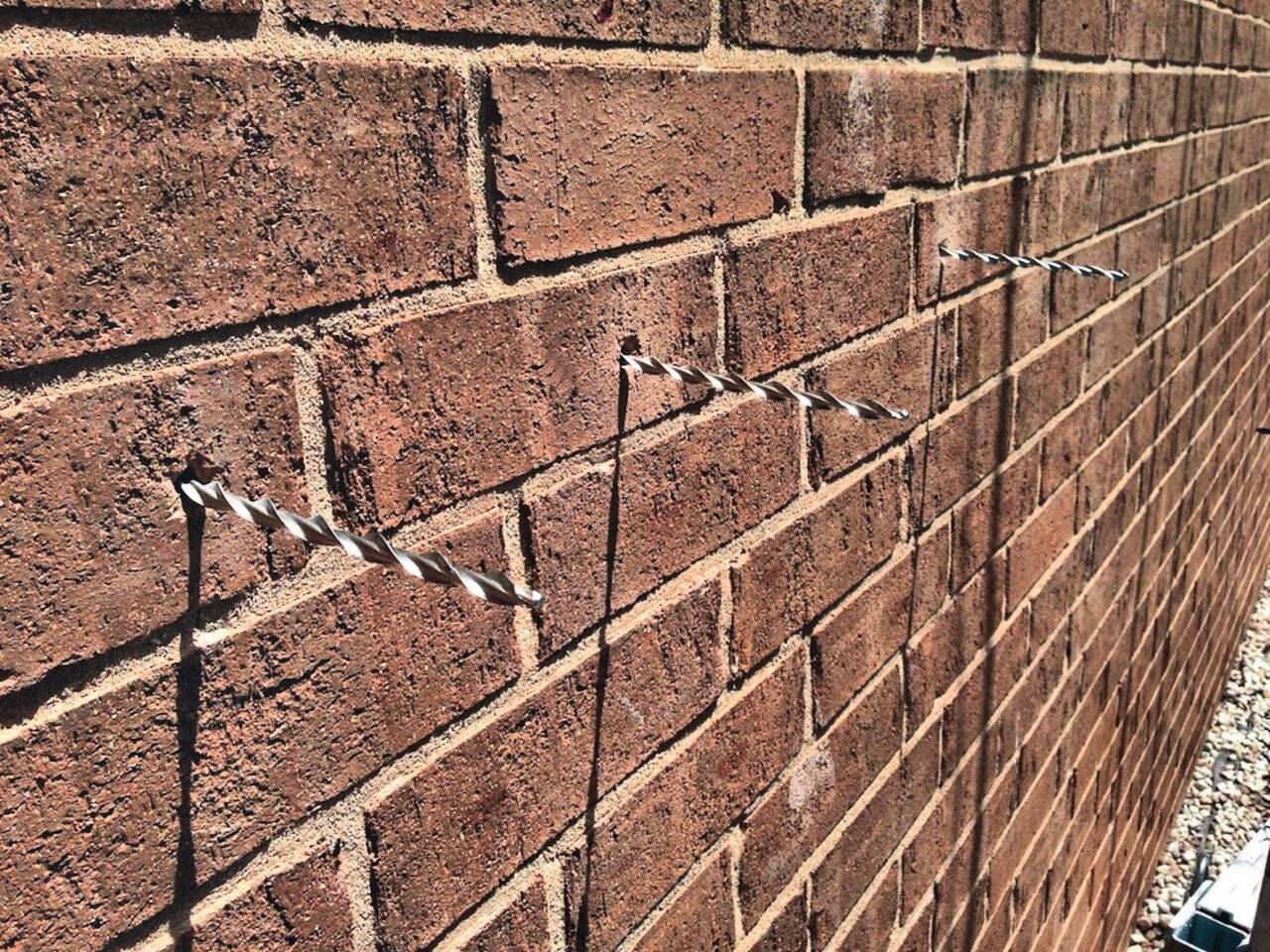
Preventing Cracks in brick house
Proper Drainage
Ensuring that your home has adequate drainage is essential for preventing excess moisture from causing cracks in your brick walls. Make sure that gutters and downspouts are clean and functioning correctly, and that the grading around your home directs water away from the foundation. Proper drainage can help maintain the stability of the soil and prevent hydrostatic pressure from damaging your home’s structure.
Routine Maintenance
Regularly inspect your home’s exterior for signs of mortar deterioration, lintel failure, or other issues that could lead to cracks in the brickwork. Promptly addressing any concerns can prevent minor issues from escalating into more significant problems. Additionally, consider applying a water-resistant sealant to your brickwork to protect it from moisture damage.
Temperature Control
Minimizing temperature fluctuations inside your home can help prevent brick expansion and contraction, reducing the likelihood of cracks forming. Insulating your home and maintaining a consistent indoor temperature can reduce the stress on your brickwork caused by temperature changes. Additionally, using high-quality materials with a low thermal expansion coefficient during construction can help minimize the impact of temperature fluctuations on your brick wall.
By following these comprehensive repair and prevention strategies, you can effectively address existing brick wall cracks in your brickwork and protect your home from future damage, ensuring its structural integrity and longevity.
Identifying Foundation Issues
Being vigilant for signs that may indicate a foundation problem is crucial for maintaining your home’s structural integrity. The following signs can help you identify potential foundation issues and take appropriate action:
Bowing or Bulging Walls
Foundation walls settling or soil pressure can cause brick walls to bow or bulge. This can occur when the soil surrounding your home expands due to moisture or when it contracts as it dries out. The resulting pressure can cause walls to shift and bow, indicating potential foundation problems. In more severe cases, the pressure can even lead to the formation of horizontal cracks in your brickwork, which should be addressed immediately by a professional.
Misaligned Doors and Windows
Difficulty opening and closing doors or windows may point to foundation issues. As your foundation shifts or settles, it can cause your home’s frame to warp or become misaligned, resulting in doors and windows that stick or don’t close properly. In some cases, gaps may form around window frames and doorways, allowing drafts to enter your home and reducing energy efficiency.
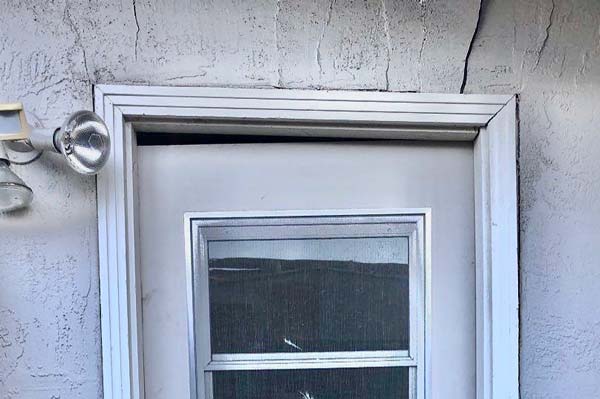
Sloping Floors
Uneven floors can be a sign of foundation settlement or heaving. Foundation settlement occurs when the soil beneath your home compresses or shifts, causing the foundation to sink unevenly. Heaving, on the other hand, is caused by soil expanding due to moisture or freezing. Both of these issues can result in sloping floors, which may be noticeable when walking across a room or by placing a level on the floor.
Cracks in Interior and Exterior Walls
Drywall or plaster cracks could also signal foundation problems. As your foundation shifts or settles, the stress placed on your home’s structure can cause brick veneer cracks to form in interior walls. These cracks may appear as small hairline fractures or more significant gaps, depending on the severity of the foundation issue. Pay particular attention to cracks that form in a stair-step pattern or run diagonally along the corners of doors and windows, as these can be strong indicators of house foundation problems.
By carefully monitoring your home for these signs, you can proactively identify potential foundation issues and take the necessary steps to address them. Early intervention can help prevent more extensive damage, protect your investment, and maintain the safety and stability of your home.
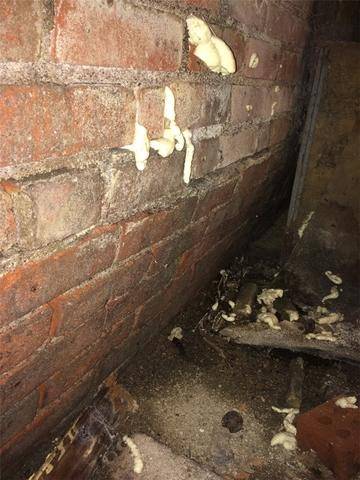
In-Depth Analysis of Non-Foundation Related Cracks
Several factors unrelated to foundation issues can lead to brick veneer cracks. Understanding these causes can help you identify and address the root of the problem effectively.
Thermal Expansion and Contraction
Bricks, like many materials, expand when heated and contract when cooled. Temperature fluctuations can cause bricks to undergo cycles of expansion and contraction, which may result in cracks. This is particularly true for homes located in regions with significant temperature changes between seasons or throughout the day. Proper insulation and temperature control can help minimize the impact of these fluctuations on your brickwork.
Lintel Failure
Lintels are horizontal support structures made of steel, concrete, or wood that span the openings above windows and doors. They bear the weight of the brickwork above and transfer the load to the surrounding walls. Over time, lintels may weaken due to factors such as corrosion, moisture, or insufficient support. Weakening or failure of lintels can lead to cracks in the brickwork directly above windows and doors. Regular inspection and maintenance of lintels can help prevent this issue and maintain your home’s structural integrity.
Mortar Deterioration
Mortar is the material that binds bricks together and provides support to the brickwork. Over time, the mortar may deteriorate due to factors such as weathering, moisture infiltration, and the natural aging process. Deteriorated mortar can cause bricks to become loose or misaligned, leading to the formation of cracks in the brickwork. Tuckpointing, the process of removing damaged mortar and replacing it with new mortar, can help address this issue and restore the strength and stability of your brickwork.
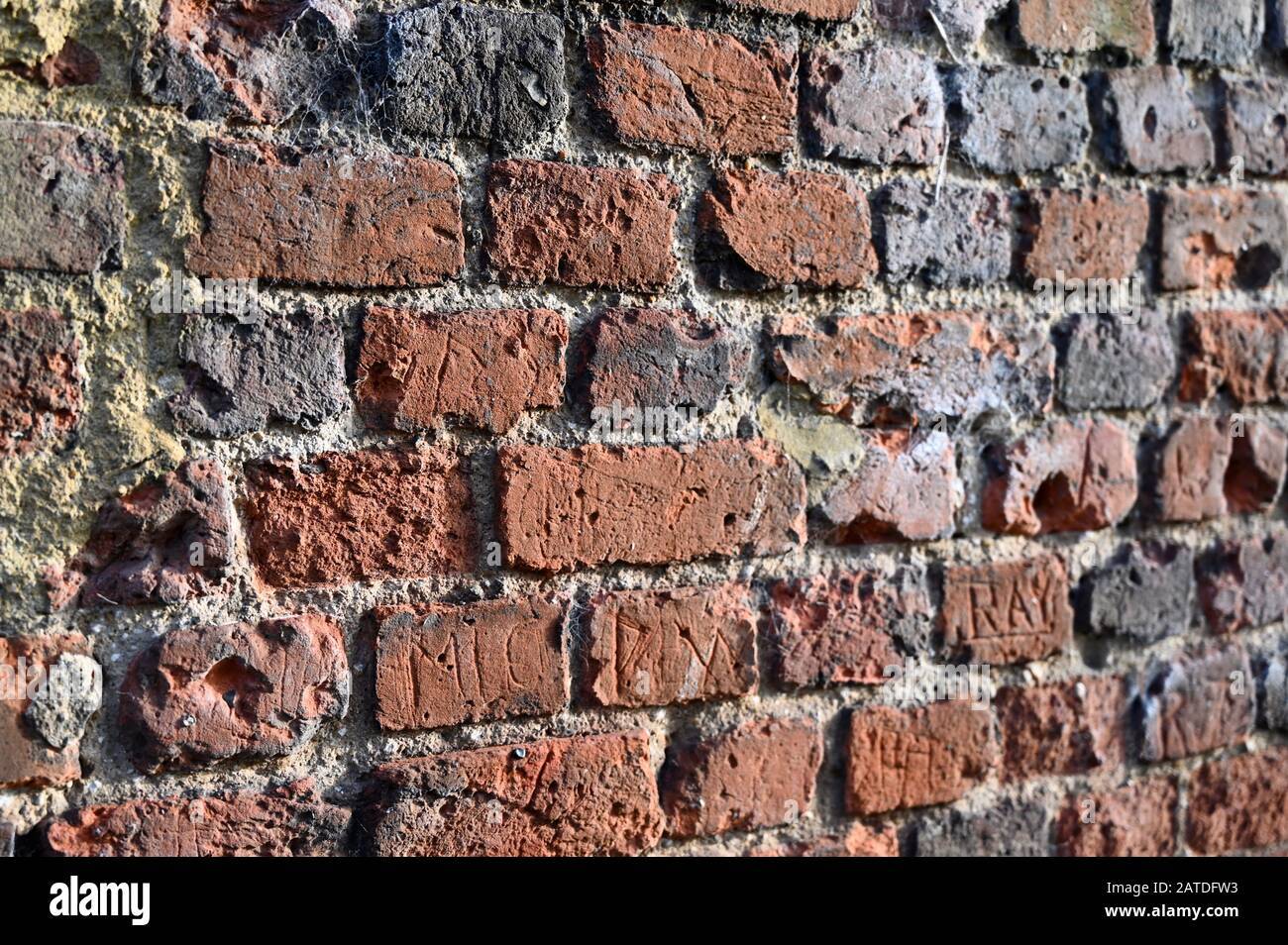
Shrinkage
If brickwork was not properly cured during the construction process, it may be prone to shrinkage. Bricks require adequate curing time to allow for the evaporation of moisture, which can cause them to contract. Insufficient curing time can result in bricks continuing to shrink after installation, causing cracks to appear in the brickwork. To avoid this issue, ensure that bricks are correctly cured and handled by reputable manufacturers and builders during construction.
By recognizing and addressing these non-foundation-related causes of cracked bricks, you can effectively prevent and repair damage to your home’s exterior and maintain its structural integrity.
Identifying When to Seek Professional Help
While some wall cracks can be repaired by homeowners, it is essential to know when to seek professional help. Recognizing the signs that require expert assistance can save time, and money, and prevent further damage to your home.
Structural Engineer
If you suspect a foundation issue or are unsure of the cause of the foundation cracks, consult a structural engineer. They can assess your home’s foundation and structural elements, identify any underlying issues, and provide guidance on the appropriate course of action. Structural engineers can also help you design and implement solutions to address the identified problems, ensuring the safety and stability of your home.
Foundation Repair Specialist
In cases where foundation issues are the root cause of brick cracking, a foundation repair specialist should be consulted. These professionals have the expertise and equipment to repair damaged foundations, correct drainage issues, and stabilize your home’s structure. Foundation repair specialists can also provide recommendations for preventing future foundation problems.
Masonry Contractor
For non-foundation-related issues, a masonry contractor can provide valuable guidance and repair services. They specialize in brickwork and can address problems such as deteriorated mortar, lintel failure, or thermal expansion and contraction. Masonry contractors can also recommend preventive measures to help maintain the integrity of your brickwork.
When to Seek Expert Assistance
In addition to consulting a professional when you suspect a foundation issue or are unsure of the cause of the cracks, there are other situations when expert assistance is warranted:
Persistent Cracks: If you have attempted repairs and cracks continue to form or reappear, it may be time to seek expert assistance. This could indicate a more severe issue that requires professional intervention.
Large or Expanding Cracks: Cracks that are growing in size or width should be evaluated by a professional, as they may indicate a more significant problem with your home’s structure.
Signs of Structural Damage: If you notice other signs of structural damage, such as sloping floors, bowing walls, or doors and windows that are difficult to open and close, consult a professional to assess the situation.
By knowing when to seek professional help, you can ensure that your home’s structural integrity is maintained, preventing further damage and preserving the safety and value of your property.
Conclusion
Cracked bricks can be a source of anxiety for homeowners, but understanding the various types of cracks, their causes, and effective repair and prevention methods can provide peace of mind. While not all cracked bricks indicate a foundation issue, it is crucial to remain vigilant for warning signs and seek professional help when necessary. By taking a proactive approach, you can protect your home and your investment, ensuring its structural integrity for years to come.